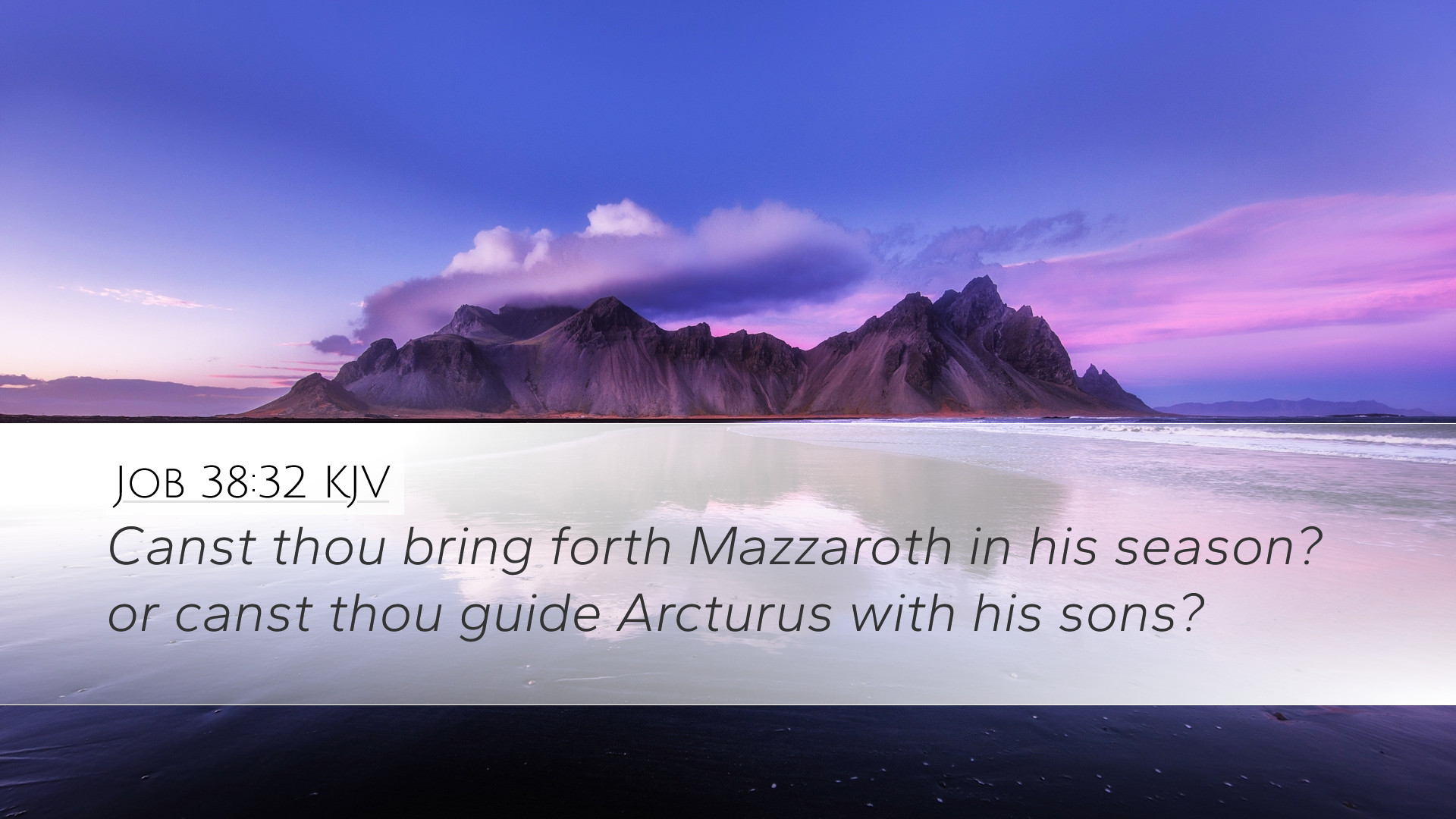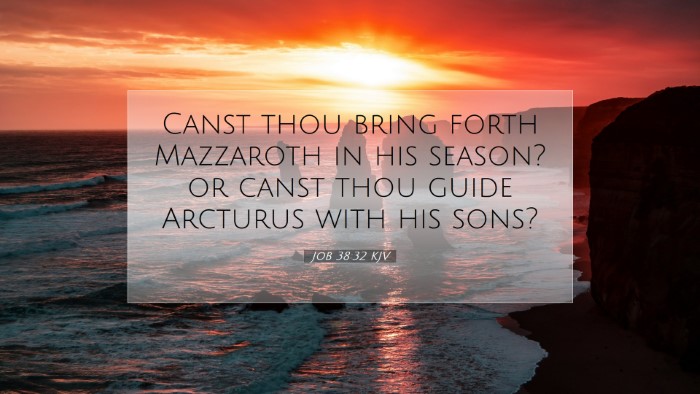Commentary on Job 38:32
Verse Text: "Canst thou bring forth Mazzaroth in his season? or canst thou guide Arcturus with his sons?" (Job 38:32, KJV)
Contextual Overview
The Book of Job presents a profound exploration of suffering and divine sovereignty. Job's dialogue with his friends leads to God's direct response, highlighting human limitations in understanding divine wisdom. This verse illustrates God's challenge to Job, emphasizing the vastness of divine knowledge compared to human understanding.
The Divine Challenge
Matthew Henry's Insight: Henry emphasizes that this verse serves as a rhetorical question posed by God. It reflects the grandeur of the universe and God's control over it, challenging Job to recognize his limitations. The phrase "Canst thou bring forth Mazzaroth" indicates God's authority over the celestial bodies and their movements.
Albert Barnes' Commentary: Barnes elaborates on the term "Mazzaroth," often interpreted as the zodiac or the constellation. He notes that God’s challenge to Job emphasizes the spiritual and astronomical order maintained by divine will, suggesting that if Job cannot manage the stars, how can he question God’s governance?
The Significance of Mazzaroth and Arcturus
Adam Clarke's Examination: Clarke discusses the identification of "Mazzaroth" and "Arcturus," suggesting they symbolize the orderliness of creation. Arcturus, one of the brightest stars, serves as a metaphor for divine guidance, highlighting God’s omnipotence in directing the cosmos and human existence.
Theological Implications
The inquiry posed in this verse invites deep theological reflection. It accentuates God's omniscience and omnipotence, calling believers to humility in the face of divine mystery.
- The Sovereignty of God: God's ability to orchestrate the cosmos signifies His supreme authority. Believers are reminded that God controls history and personal destinies.
- Human Limitation: This verse reveals the finite nature of human understanding, encouraging repentance and recognition of God’s greatness over individual trials.
- Confidence in Divine Order: The natural order established by God is a testament to His faithfulness, reassuring believers that God’s plans are perfect, despite present hardships.
Applications for Pastoral Ministry
This verse is a pertinent reminder for pastors and theologians as they counsel those in suffering. Understanding the vastness of God’s providence can help believers find solace amid trials by accepting that God's ways often surpass human understanding.
Pastoral Considerations:
- Encouraging a posture of humility and awe before God’s creation.
- Teaching that questions in times of suffering are natural but should lead to deeper reliance on God’s wisdom.
- Highlighting God’s authority over all creation can inspire trust in His plans, even when circumstances seem dire.
Conclusion
Job 38:32 encapsulates a rich theological discussion on God’s sovereignty, the order of creation, and human limitation. The insights from esteemed commentaries provide a multi-faceted understanding that remains relevant for scholars, theologians, and students alike. By reflecting on this verse, one is invited into a deeper relationship with the Creator, recognizing both His magnificence and our need for His guidance in navigating life’s complexities.


